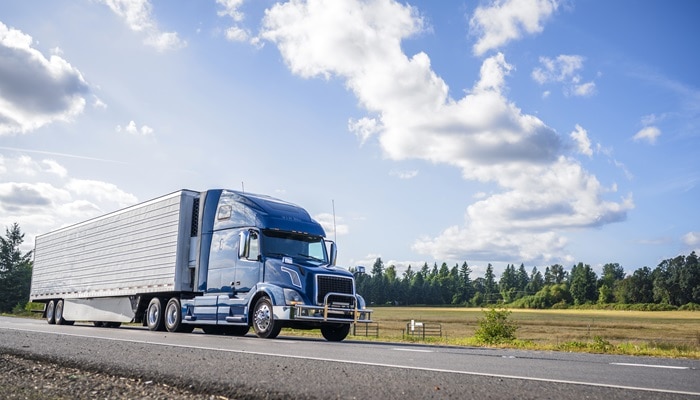In 2024, the transportation logistics sector is evolving to sustain the pressure of meeting various sustainability targets owing to a global shift in environmental practices. Canadian trucking industry leader Challenger Motor Freight is responding to these trends by applying modern techniques that lessen its adverse environmental footprint, which is a great forward step in how the trucking industry approaches sustainability.
The Rise of Nature-Positive Strategies
In 2024, perhaps one of the biggest shifts in sustainability is ‘nature-positive’ strategies. As organizations are confronted with modern legislation in Canada such as the Canadian Net-Zero Emissions Accountability Act (2021), this trend appears to be gaining traction. This legislation requires businesses to manage and account for their greenhouse gas emissions as well as disclose their environmental impact, intensifying the pressure on companies to manage their environmental impact. For this reason, many have started utilizing the latest technologies including sustainability reporting to comply with these new requirements.
Challenger is ahead of the curve in this area, having adopted technologies that enable more precise tracking of its environmental footprint. With the help of advanced tools such as environmental DNA, acoustic technology, and artificial intelligence, the company is able to prevent and manage the negative impacts on natural systems in real-time. Such measures are in sync with global initiatives that seek to tackle the growing threats of loss of biodiversity and climate change, which is now a core business issue.
CEO and President of Challenger, Jim Peeples, emphasizes the company’s role in shaping these changes. “Sustainability is not just about meeting government requirements. It is about producing new solutions that have the potential to be adopted across the entire industry,” says Peeples. He highlights that while traditional sustainability measures focus on emissions reductions, Challenger is going further by also targeting the preservation of biodiversity through smarter, data-driven practices.
Green Fuel Strategies and Fleet Optimization
Challenger has taken steps toward ensuring fleet optimization by using telematics and AI systems for better route scheduling and lesser fuel usage. Such technologies enable the collection of critical data about the vehicle’s performance in real time, making it easier for drivers to select fuel-efficient options and cut back on the unnecessary empty miles that they cover. This system has led to reductions in both emissions and operational costs.
“We’ve used technology not just to comply with existing standards but to create new ones. For us, it’s a question of efficiency in operations together with being sustainable.”
Responsibility and Collaboration
Sustainability is no longer just a buzzword—it’s a business necessity. To meet the rising expectations of consumers for corporate responsibility, Challenger has put transparency at the forefront of their sustainability strategy. The company regularly publishes detailed reports on its environmental performance, sharing both successes and areas for improvement.
This openness has become a hallmark of Challenger’s approach, with Peeples arguing that collaboration with other industry players, regulatory bodies, and stakeholders is crucial. “We understand that no single company can solve these issues alone. It’s about forging partnerships across the supply chain to create lasting change,” he says.
Challenger demonstrates that a business can thrive without economically polluting the environment. As the industry looks to transform energy sources and emissions, Challenger may be ahead of the game.
Moving Beyond Compliance
For Challenger, sustainability is not only about following regulations. The company is committed to developing advanced technologies focused on both emission reduction and ecosystem conservation. By pursuing these strategies, Challenger has positioned itself as a leader in the industry, creating a benchmark for other players in the field.
To some organizations, sustainability can be framed in the narrow context of meeting obligations. Challenger, however, sees this as a new avenue for sustainable growth. Sustainability is a key consideration in Challenger’s business model as it seeks to expand into markets with increasing sustainability and compliance requirements.


































